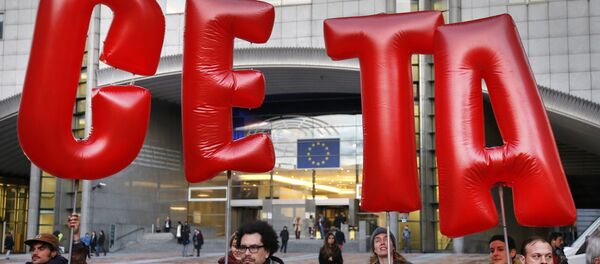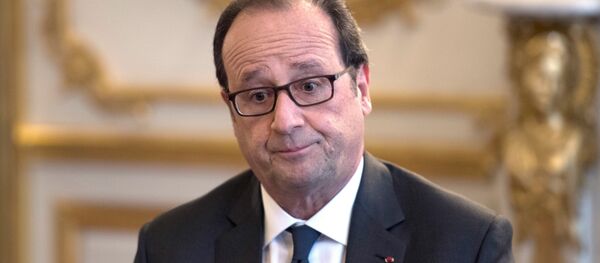Almost 15,000 people were surveyed in the online poll, which has found support for the European Union remains above 60% in most of the larger member states.
Currently, all countries would vote to Remain in an EU referendum — including the UK pic.twitter.com/eCIoz0Wwzy via @EuropeElects #brexit
— Giles Goodall (@GoodallGiles) December 29, 2016
Yet domestically, the revealed significant unease with 89% of voters in Greece thinking their country is heading in the wrong direction; 82% in France; 79% in Italy and 62% in Germany.
After Brexit and President-elect Trump's victory in the US, nervous investors are watching for any sign that anti-EU discontent is on the rise for 2017.
It certainly has grown across the bloc throughout 2016. In its place, nationalist populism has risen, galvanized by every terror attack and EU trade deal that has been knocked back by bureaucracy.
Atrocities like the Bataclan attack in Paris in November 2015, and the Berlin Christmas market attack in December 2016, led to fierce condemnation of EU authorities. At issue was the revelation that in both cases, the perpetrators were able to move freely into and around the EU bloc. The allegation was that the key EU principle of freedom of movement is a risk to EU citizens if the EU's external borders are not robustly policed.

The EU promised to bolster it's border management, launching a new border agency, the European Border and Coast Guard.
Trade negotiation fiascos like the CETA deal between the EU and Canada dented the reputation of the EU. One small region of Belgium, Wallonia, was able to block the signing of the deal, already agreed by the rest of the EU. It laid bare the crippling weakness of excessive bureaucracy, which lies at the heart of the EU federalized structure.
"2016 saw the EU foundations severely shaken," said Johnny Heald, managing director of ORB International, who did the UK polling for A WIN/Gallup International.
"What stands out is the overwhelming view from EU citizens that their countries are heading in the wrong direction — most noticeable in France and Greece — which makes fertile ground for right-wing populist parties."
Indeed, the French will go to the polls to elect a new president in spring 2017. The incumbent Francois Hollande has already bowed out of the race.
Instead, much of the coverage has been dominated by Marine Le Pen, the leader of the anti-immigrant, far-right Nationalist Front party.
Le Pen is vehemently anti-EU and has vowed that if she wins the presidency, she will push for a 'Frexit' to become the second country to abandon the EU after the UK.
The polls do not show her making it past the first round of votes, but if pollsters have learnt anything from 2016, it is that the public can be very fickle when it comes to answering pre-election polling surveys.
The survey was carried out between November 25th to December 7, 2016.
Meanwhile, the UK is due to trigger the process to withdraw from the EU in March 2017.





